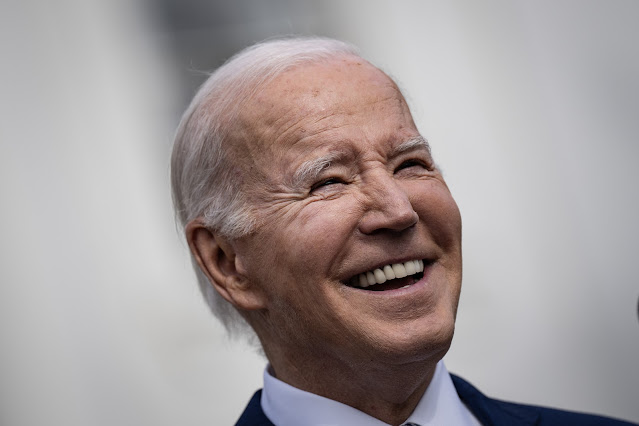In the waning days of President Joe Biden’s administration, a controversial and divisive idea has surfaced among senior staff: preemptive pardons for public officials who may face legal action under a future Trump administration. The notion, reportedly under "vigorous internal debate," has sparked widespread criticism, even before reaching the president’s desk. It represents, at best, a misguided political calculation, and at worst, a move that could undermine the rule of law and set a disastrous precedent for future administrations.
The Proposal
According to reports, Biden’s aides are considering preemptive pardons for individuals who could be targeted by Donald Trump’s Justice Department should he return to power. Among those named are members of Congress’ January 6 Committee, including Senator-elect Adam Schiff (D-Calif.) and former Representative Liz Cheney (R-Wyo.), as well as Anthony Fauci, the former director of the National Institute of Allergy and Infectious Diseases. Trump has previously singled out these individuals, calling for their imprisonment and publicly attacking them in the wake of their roles in his political and legal challenges.
While this proposal might be framed as a shield against political retribution, it carries profound implications that make it an extraordinarily dangerous idea.
The Problem with Preemptive Pardons
At the heart of the controversy is the Supreme Court’s 1915 ruling in Burdick v. United States, which held that accepting a pardon implies an admission of guilt. By issuing preemptive pardons, the Biden administration would effectively be branding the recipients as guilty of crimes they have not been accused of, let alone convicted of. This would not only undermine the individuals’ reputations but also serve to validate the very accusations of wrongdoing that Trump and his allies have levied.
Moreover, the use of preemptive pardons risks setting a precedent that could encourage future administrations to abuse the pardon power. If presidents can immunize their subordinates from potential legal consequences, they may feel emboldened to act with impunity, knowing they can shield themselves and their allies from accountability. Such a practice would erode the checks and balances designed to ensure government transparency and accountability.
Hypocrisy and the Erosion of Norms
For a party that has vocally decried the expansion of presidential powers and the erosion of democratic norms, this proposal reeks of hypocrisy. Just months ago, Democrats condemned the Supreme Court’s broad interpretation of presidential immunity in the context of official acts. Now, they appear willing to extend a similar immunity to their own subordinates, based not on actions already taken, but on a hypothetical future scenario.
This inconsistency undermines the party’s credibility and risks alienating voters who have supported Democrats precisely because of their opposition to such abuses of power.
The Political Calculation
Some have speculated that this proposal is less about protecting individuals from hypothetical legal actions and more about internal party politics. Axios reporter Alex Thompson suggested that Biden’s team might be attempting to placate Democrats upset over his earlier decision to pardon his son, Hunter Biden, by applying the rationale for that pardon more broadly. If true, this would represent a deeply cynical calculation, prioritizing political expediency over the principles of justice and good governance.
A Precedent We Cannot Afford
The dangers of this idea extend far beyond the immediate political context. By normalizing preemptive pardons, the Biden administration would risk turning the peaceful transfer of power into an even more adversarial process, where outgoing presidents preemptively shield their allies from potential legal scrutiny. This could lead to a vicious cycle of retribution and counter-retribution, further eroding public trust in government institutions.
The pardon power, while broad, was not intended to be a tool for anticipating or forestalling hypothetical prosecutions. Its misuse in this manner would undermine the very foundations of democratic governance and the rule of law.
A Hopeful Conclusion?
For now, this proposal remains under debate, and it is unclear whether it will advance further. Former White House communications director Kate Bedingfield has indicated that Biden might view this as an opportunity to protect individuals from unjust targeting. However, such reasoning fails to account for the long-term consequences of this approach.
As the debate unfolds, it is imperative that cooler heads prevail and that the administration recognizes the perils of this path. Preemptive pardons may seem like a quick fix to a politically charged problem, but they carry costs far greater than any potential benefit. This is one idea that deserves to be shelved permanently.










.png)
